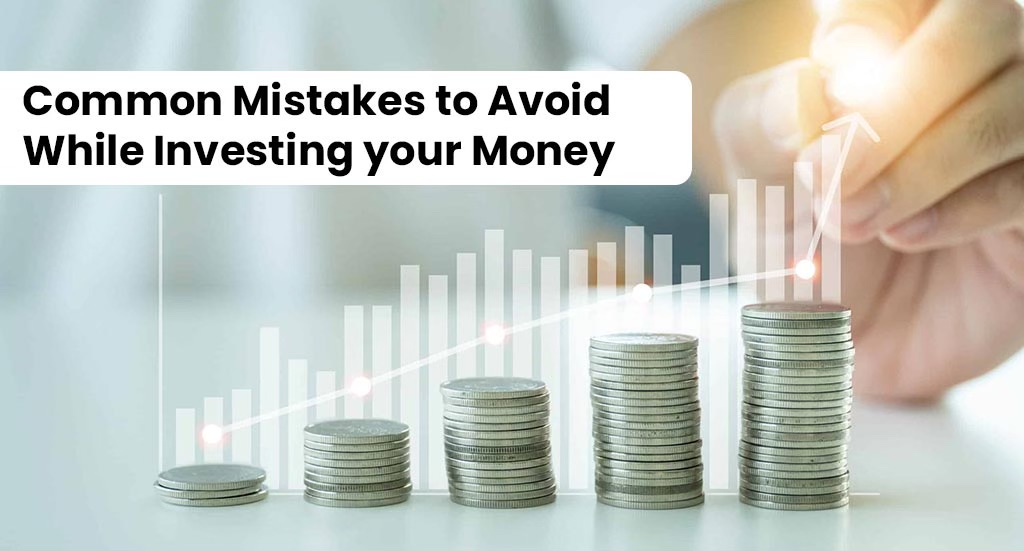Investing has infiltrated our lives like a gym membership we promise to use someday, becoming as necessary as morning coffee and weekend brunch. Investing is no longer just for Wall Street bigwigs – with a few taps on a smartphone app, you can become a legitimate investor.
It’s like giving your future self a high-five in the present, ensuring that although your future weekends are full of exotic expeditions, your present self can still enjoy veggie toast. After all, why merely live in the moment if you can also benefit from it? Therefore, nowadays many youngsters, adults, older individuals and even teenagers are taking a step ahead and enjoying the new-age lifestyle in which their financial game is as strong as their Instagram game because nothing says “I’ve got my life together” like a diverse portfolio.
However, when beginning your rollercoaster journey of investing or walking the road to building a high-returning portfolio, it is necessary to pay heed to the loopholes of investing to save yourself from falling into the pit of losses.
Here are a few mistakes to avoid to reap fruitful and long-term returns:
- Not setting a clear investment goal
Investing without a defined aim is like going on a road trip without a map and you’ll most likely get lost and irritated. Setting an investment goal helps you choose what you want, how long you have, and how much risk you are willing to take. Without an objective, you may purchase stocks without knowing the hazards or select mutual funds without understanding their purpose. This can lead to poor decisions, losses, and missed opportunities. Consider your objective to be your money’s GPS, guiding you to financial achievement without unnecessary diversions.
- Timing the market
Setting realistic investing goals provides a clear target, whether you’re saving for a home, college, a luxury vacation, or retirement. Many investors await the “right” chance to enter the market. What if that time never comes? It’s easy to get caught up in terrible news, believing that the market will continue to fall and that you should wait until it hits rock bottom. But what happens if it keeps falling? Spending time in the market is more significant than trying to enter at the correct time.
Markets fluctuate, but the underlying tendency is usually upward, which can only be seen if you invest for the long term. Instead of attempting to purchase low and sell high, prioritise buying and keeping. This lets you sell at a greater price later, making the plan more effective.
- Missing out on diversifying
While professionals may profit handsomely from a few focused bets, average investors should steer clear of this risky activity. Instead, invest in diverse assets, ranging from equities and mutual funds to gold. When creating an ETF or mutual fund portfolio, diversify your investments across important sectors. The same is true for individual stock portfolios, which cover all major categories. A decent rule of thumb is to avoid investing more than 5% to 10% in a single investment. Consider it like a balanced diet: sampling a little of everything is safer and more satisfying than focusing just on one item.
- Not matching investment with life goals: Investment should be according to your life goals. If you are saving for your retirement, you needn’t bother about short-term market corrections. You can be invested for the next 20 years. On the other hand, if you’re investing in a house and have to make a downpayment in a year and the market falls, your investment becomes a risky and volatile asset and you should not invest in equities in such a case.
- Doing Emotional Investing
Emotional investment is a classic mistake. Fear, greed, and panic can hurt your finances. When you act on emotions rather than logic, you frequently buy or sell at inconvenient periods. Consider a concerned investor selling during a market downturn, only to miss out when things recover. Or a greedy investor who buys a hot stock without conducting any investigation, only to lose a lot of money when the bubble bursts. Investing with your heart rather than your head? That can be the thorn-loaded way to a financial soap opera you don’t want to appear in.
- Not increasing amount invested through savings: This is a common mistake. Focus on increasing the principal amount of investment through savings rather than only eyeing the outcome.
- Avoid paying extra fees
Investing in expensive funds or paying exorbitant advisory fees is a common error. Even a minor rise in fees might have a major long-term impact on your wealth. Before making any financial selections, consider the prospective costs. Choose funds with acceptable prices, and make sure that the advisory fees you pay are appropriate to the value you receive. It’s about being financially savvy, always weighing the expenses and advantages before making any commitment.
Remember that when it comes to saving, every penny saved in fees today could equal an additional penny in retirement tomorrow. So, keep your expenditures low, make intelligent choices, and watch your money grow like a well-kept garden, steady, fruitful, and always prepared for a rainy day!
Happy investing!








